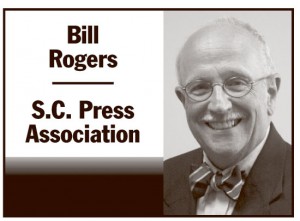Best police oversight option?
Hardly a week goes by now without the surfacing of a cellphone video of police abuse, often of minorities.
 These private camera videos are providing the best and often only record of police confrontations, such as the shooting of Walter Scott in North Charleston, or the more recent incident at a pool party in Texas.
These private camera videos are providing the best and often only record of police confrontations, such as the shooting of Walter Scott in North Charleston, or the more recent incident at a pool party in Texas.
South Carolina just passed a law requiring police to wear body cameras, and while they may do some internal good, don’t expect to see the images in the news.
The public and the press will not have access to the images from these police cameras. Their data is now legally “not a public record” and not subject to release under the Freedom of Information Act.
The idea that these cameras could provide needed oversight of police actions was trumped in the Legislature by privacy concerns, real or imagined.
These cameras will cost taxpayers an estimated $22 million a year. Yet these recordings are secret.
So let’s look at the Walter Scott shooting. The policeman who shot Scott in the back can be seen on the privately shot video planting his Taser by Scott’s body, likely to corroborate his original story that the unarmed man was shot in self-defense.
Without the private video, the truth might never have been known. This tragedy helped the body-camera bill gain traction at the Statehouse.
If such an incident reoccurred with a police body camera in use, would the public ever have seen it? The law now says a law enforcement agency, the State Law Enforcement Division, the attorney general or a circuit solicitor may release data recorded by a body-worn camera at its discretion. But will they?
Even with police dashcam videos, which are clearly open under the law, police have a poor record of releasing videos.
A suit has recently been filed in Aiken over SLED’s refusal to release the dash video from the fatal police shooting of an unarmed man in his car more than a year ago. A civil suit in the shooting has already been settled for more than a million dollars, but the public has not seen the video.
In Greenwood two years ago, the Highway Patrol had to be sued before it would release a video of the arrest of a city councilwoman.
Another bill, S. 647, was introduced late in the session that would make sure police cannot hinder or prevent a person taking a photograph of a law enforcement officer performing his or her official duties in a public place.
The important bill, by Sen. Gerald Malloy and others, says photographers cannot be prevented from making photographs, be arrested or be intimidated. Their cameras cannot be seized without a warrant, and their recordings may not be destroyed by police. Let us all hope it passes next year.
With public access to police body camera footage limited, private cellphone cameras remain our best method of documenting police confrontations.
My grandson is teaching me how to take videos on mine.
Bill Rogers is executive director of the S.C. Press Association, an advocate for open government in South Carolina.



























